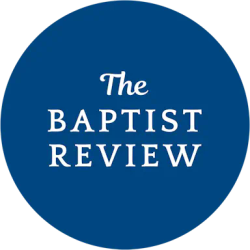I was glad to see Russ Barksdale’s recent article, not because I agree with it—I don’t—but because it offers an exegetical argument that can be responded to. This is different from much of the discussion surrounding the Law-Sanchez amendment, a good deal of which strikes me as thinly-veiled Bulverism (the logical fallacy consisting in the psychologization of one’s opponents, e.g., “You only support the Law amendment because you hate women”).
Instead, Barksdale reminds us of the importance of seeking “to discover authorial context and intent, understanding of the specific genre, and serious examination of the grammatical words and structure of the text.” With the same goal in mind, I would like to offer the following rejoinder.
The Lexical Case Against the Law Amendment, Reconsidered
The central claim of Barksdale’s argument is that “the Law Amendment wrongly assumes that the New Testament explicitly utilizes the Greek noun poimēn, commonly translated as pastor/shepherd, in reference to the overall leader of a local church.” Setting aside his comment about “an overall leader of a local church” (does he not affirm a plurality of elders?), Barksdale is right in saying that the preferred terminology of New Testament authors for the men called to shepherd God’s people are the terms presbyteros (elder) and episokopos (bishop/overseer). Both of these words are nouns that refer to the same office in the local church, namely, the one office of “bishops [i.e., overseers] or elders,” as the BF&M 1925 puts it (cf. Titus 1:5–7). So far, so good.
However, Barksdale misrepresents the New Testament lexical data on this point, claiming that the term presbyteros (elder) is used 57 times to refer to the ecclesial office when, by my count, the actual number of uses in reference to the ecclesial office is less than a third as frequent as Barksdale has claimed. Similarly, episkopos (bishop/overseer) occurs 5—not 7—times, four of which refer to the ecclesial office and one of which refers to Jesus. This means Barksdale’s argument from lexical frequency rests on inflated numbers, which (regardless of intention) skews the case in his favor. Furthermore, Barksdale has overlooked critical information regarding the verbal use of the word “to pastor/shepherd” which, if included in his word count study, would mean that the New Testament refers to pastors/pastoring almost as frequently as it refers to bishops/overseers.
Barksdale next points out that the only time the noun poimēn (pastor/shepherd) potentially might be used with reference to the office of elder/overseer is Ephesians 4:11, where “the pastors and teachers” are listed after “the apostles, the prophets, [and] the evangelists” as persons given by the Lord “to equip the saints for the work of ministry” (Eph. 4:12). The question is whether or not the “pastors” in Eph. 4:11 are to be understood as the category of men who hold the office of “elder/overseer” or merely as a group of gifted leaders—perhaps including women, as many are now arguing—whom God has gifted to “shepherd/pastor” the church.
Curiously, Barksdale notes that Ephesians 4:11 does not fit the Granville Sharp’s Rule of Greek grammar. This is an accurate observation, but it has no bearing on the question of whether the “pastors” in Eph. 4:11 are elders/overseers. At most, this grammatical point simply clarifies that the “pastors and teachers” of Eph. 4:11 should not be regarded as referring to one category (i.e., the pastor-teacher) but to two categories (i.e., pastors and also teachers). This is not seriously debated by contemporary scholars, and (once again) it has no import for the debate at hand.
Barksdale’s discussion of the lexical data of Ephesians 4:11 closely follows Greek expert Dan Wallace, who is tends to be my first stop for questions of grammar and syntax, too. That’s why I was surprised to see that Barksdale omitted Wallace’s conclusion, which equates “elders” and “pastors” and argues that Eph. 4:11 should be understood to mean that all pastors/elders must be teachers (1 Tim. 3:2; Titus 1:9), while not all teachers will be pastors/elders (see Daniel Wallace, Greek Grammar Beyond the Basics, Zondervan, 1996, p. 284). In other words, Wallace sees the use of the term “pastor” as referring to the office of “elder/overseer”—precisely the opposite conclusion than the one Barksdale comes to.
The question remains, of course, whether Wallace—and the supporters of the Law Amendment, for that matter—are right to say that the New Testament uses the Greek term poimēn (pastor/shepherd) in a synonymous or overlapping fashion with the terms “elder” (presbyteros) and “overseer” (episokopos). I argue that supporters of the Law amendment are correct on this point, believing it to be supported in Scripture and reflected in the usage of these terms in recent Baptist history.
1. The Argument from Scripture
In two of the (very few) passages in the New Testament where the duties of the elder/overseer are laid out we find the activity of “shepherding/pastoring” mentioned by name. In Acts 20, Paul calls the elders (presbyteroi) of the church together (Acts 20:17) and exhorts them to “pay careful attention to yourselves and to all the flock in which the Holy Spirit has made you overseers [episkopoi] to shepherd/pastor [poimainein] the church of God, which he obtained with his own blood” (Acts 20:28). Thus, according to Paul, the activity of pastoring/shepherding is something that elders/overseers do as those who have been charged to pay careful attention to the flock (an important shepherding metaphor) committed to their care (cf. Heb. 13:17).
In another place, Peter calls the elders of the church (1 Pet. 5:1) to “shepherd/pastor” the flock (there’s that metaphor again) of God by “exercising oversight” (episkopountes, 1 Pet. 5:2). Note that the “elder” is here described as doing two things: shepherding/pastoring the flock and exercising oversight, with the latter activity employing a participle related to the noun “bishop/overseer” (episkopos). So, both Peter and Paul see elders/overseers as shepherding the flock entrusted to them. It’s the “job” of elders/overseers to be pastors, in other words.
Yet Barksdale argues that just because elders/overseers are called to “shepherd” or “pastor” the flock does not mean we should call elders/overseers “pastors.” He writes, “Paul’s or Peter’s exhortation to the elder/overseer to take care of the flock does not require that the noun form of shepherding be added to the office of elder/overseer.” But the logic of the apolostolic metaphor all but seems to require this. That is to say, elders/overseers have a flock (poimnion) which they are supposed to “pastor/shepherd” (poimainō). And what do we call a person in charge of a flock, whether literal or metaphorical? We call them a shepherd—a poimēn—a pastor.
This is precisely why Peter concludes his word to the elders by exhorting them to carry out their pastoral oversight by remembering “the chief Shepherd” (1 Pet. 5:4), that is, the Arch Pastor (archipoimen). It would seem odd in the highest for Peter to call elders to shepherd/pastor the flock of God and to remember the chief Shepherd/Pastor in their midst while insisting that such men are not to be called shepherds/pastors themselves!
Barksdale goes on to argue that just because elders/overseers perform the function of pastoring/shepherding does not mean that others in the church cannot also pastor/shepherd as well. He offers an extended illustration in a woman leading a children’s ministry is said to “pastor” the children in her care, the parents of those children, the leaders on her ministry team, and people she visits in the hospital. He concludes, “Certainly all of those who hold the office [of elder/overseer] perform a shepherding function over the whole church; however, in many of our churches not all of those who perform a shepherding function hold the office.”
Barksdale’s example commits the error of equivocation, where the same word is used—sometimes unintentionally—with different meanings. To be specific, what he calls “pastoring/shepherding” in his example could also be described as caring for children in her charge, supporting parents in their duties, showing mercy to people on hospital visits, offering counsel to those on her team, etc. I suppose that someone could insist on calling all those activities “pastoring/shepherding,” but if the Bible’s use of this term is our guide, they should not do so. The only people explicitly said to “pastor/shepherd” the flock of God in the New Testament are Jesus (Matt. 2:6; Rev. 7:17; 19:15), the apostle Peter (John 21:16), and the men who fill the office of elder/overseer (Acts 20:28; 1 Pet. 5:2). This is a critical omission in Barksdale’s argument. It means that those who insist on calling women “pastors” (or permitting others to do so) are using a biblical term in an unbiblical way, equivocating the unique capacity in which elders/overseers function as “pastors/shepherds” with the general ways in which all of God’s people are called to care for one another (e.g., Col. 3:16).
2. The Argument from History
Barksdale begins his conclusion with a paragraph affirming his complementarian bona fides, namely, male headship in the home and the church, including male-only ordination to the office of elder/overseer. But then he goes on to say, “Until the advent of the Law Amendment, I never once thought ‘pastor’ was a title reserved only for the officeholder, only that the office itself, regardless of title, was reserved for a man.” This is almost identical to the argument that Rick Warren made, just before his church was disfellowshipped from the SBC.
This is also contrary to our own confessional history. Both the BF&M 1963 and the (un-amended) BF&M 2000 clearly state that the church’s “officers are pastors and deacons” (emphasis added). Moreover, the word “pastor” was used (both in 1963 and 2000) to replace the language of the BFM 1925, which states that the church’s officers are “bishops, or elders, and deacons.” In other words, Baptists have an established history of using the word “pastor” to refer to the office in the church undisputedly known as elder/overseer.
Therefore, if someone wants to argue that Baptists were wrong to have linked the term “pastor” to “elder” and “bishop [overseer]” in 1963 and 2000, they may do so—though I would not advise that course of action, given the lexical argument I have laid out above. What one absolutely cannot do, however, is claim that the Law Amendment is changing anything intrinsic to Southern Baptist beliefs. If anything, the Law Amendment is simply clarifying Baptist beliefs, upholding both the harmony we see across all three version of the BF&M and the overlapping usage of the terms elder/overseer/pastor in the New Testament.
The Law Amendment reflects the overwhelming consensus of Southern Baptists today and the historical consensus of Southern Baptists since at least The Baptist Faith and Message 1963. Most importantly, it reflects a sincere attempt to bring Baptist faith and practice in line with the Scriptures for the glory of God and the health of his church.
For my part, I hope the Law Amendment passes with even greater support than it had the first time. But I don’t think its passing should mean that churches currently out of compliance with the Baptist consensus and the biblical precedent ought to be immediately disfellowshipped. Instead, I would propose something like a two-year period for churches to bring the titles and functions of their leaders in step with the Scriptures and the BF&M. I say this because I suspect that some Southern Baptists—not unlike Barksdale himself, it would seem!—may not have been aware that our statement of faith already refers to the scriptural office of “elder/overseer” as “pastor.” (In fact, in the SBC churches where I grew up, calling a pastor an “elder” got you strange looks.)
For all these reasons, the Law Amendment does not strike me as “a bridge too far” that threatens to divide us. Rather, I’d argue it’s a bridge just far enough—one with the ability to clarify what ought not be confusing, while consolidating Baptist practice in light of both our historical consensus and the teachings of the Book that is the basis of our faith.
Editor's Note: As a part of its commitment to fostering conversation within the Southern Baptist Convention, the Baptist Review may publish editorials that espouse viewpoints that are not necessarily shared by the TBR team or other contributors. We welcome submissions for responses and rebuttals to any editorials as we seek to host meaningful conversations about the present and future of our convention.

Join the Baptist Review for our Presidential Forum in Indianapolis on Monday, June 10 at 9pm. Registration is required for attendance.


